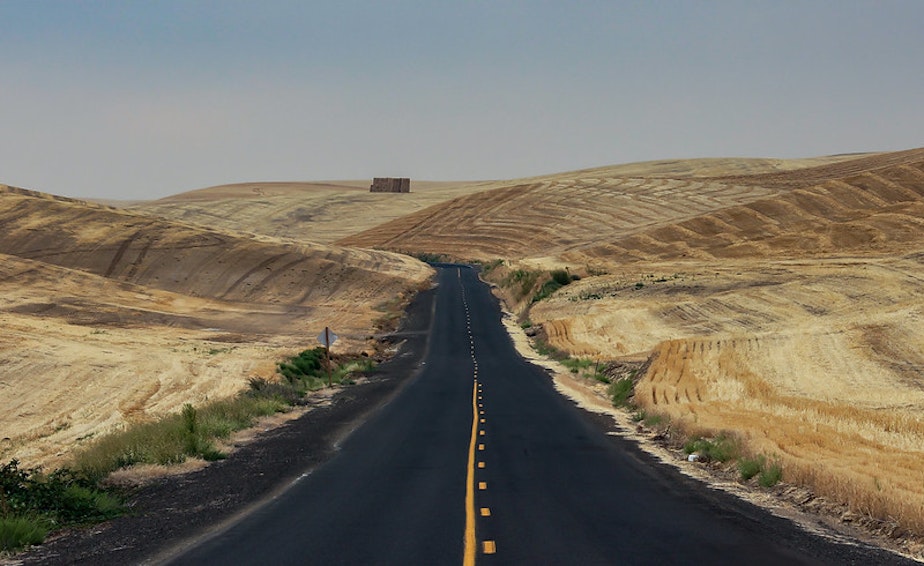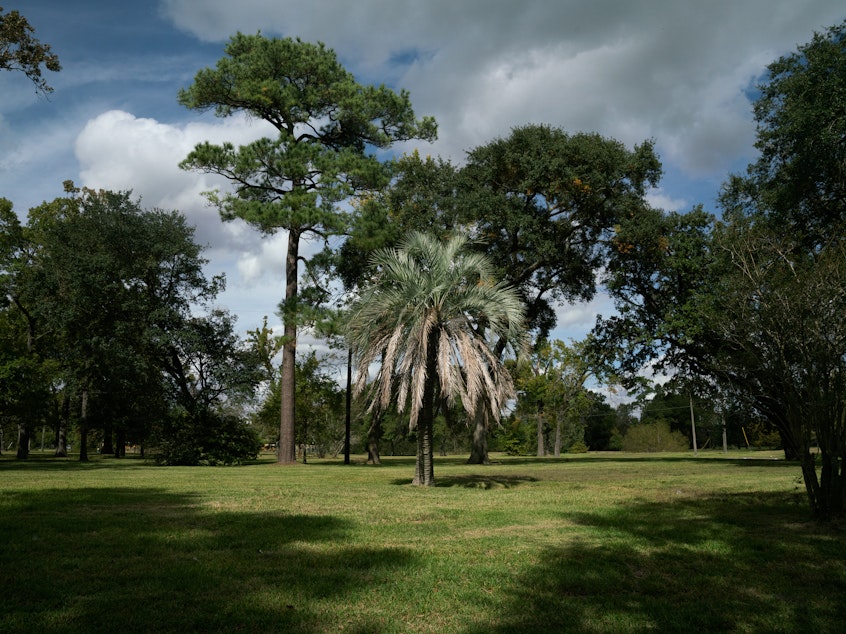Could all these city slickers ruin rural Washington? Today So Far

- A lot of city folks have moved out to rural Washington over the past few years.
- Seattle is still booming and will soon require a new area code to handle all the phone numbers.
- Families in this rural town worry about food security once school is out for summer.
This post originally appeared in KUOW's Today So Far newsletter for June 16, 2023.
Will all these new city slickers change the rural Northwest? For better, or worse?
That's a question a lot of folks in rural corners of Washington state may be asking themselves these days. Northwest News Network's Courtney Flatt recently visited Waitsburg, Wash., to get some answers. The small town is about a half hour drive from Walla Walla, and is surrounded by an expanse of open land — where all our food comes from. In 2020, Waitsburg had just under 1,200 people living locally. But the pandemic changed a few things.
Less populated, rural areas across the USA were slowly losing their populations before 2020, and urban areas were gaining people. The Census Bureau noticed that this trend reversed over 2020 and 2021. Suddenly, rural areas were gaining people, and city populations were declining. The national trend continued in 2022, but to a lesser degree. The severity of this trend depends on where you look, but according to the Bureau, it definitely happened across Washington state.
That's why small towns like Waitsburg have noticed a few new faces around town. A while ago, that would have made Markeeta Little Wolf feel a bit nervous. She's a former mayor of Waitsburg and has been cautious of newcomers.
“I wanted to put a moat around Waitsburg with a drawbridge, don’t let them come in," Little Wolf told Northwest News Network. "They’re going to ruin the place."
Sponsored
I have a certain admiration for many of these rural areas, and if I moved to any of them, I certainly would be viewed as one of these city slickers moving in and threatening the vibe of the place (sorry, not sorry; I just really like the movie "City Slickers" and I don't get to write it very often). I've previously lived in lesser-populated parts of our state. There is a noticeable shift in communities where this sort of migration happens. Folks move in for the slowed down atmosphere, and community attitude. But sometimes, someone comes around and starts saying things like "condos" or "shopping center." Once that happens, things aren't as slow as they once were, and the town might not feel like the same community folks came for. That doesn't always happen, and towns have some control over how they grow, but that is a genuine fear. But fears don't always reflect reality.
In Waitsburg, "that didn't happen," Little Wolf said. "The people that have come from Seattle or Los Angeles have come in and they've said, ‘Wow, this is something that we need to preserve.’”
“You can walk up and down Main Street, you can look into windows. There's things to see, grab a cup of coffee, have a drink or two or three. And there's things to do."
A benefit of the recent influx of people has been a surge of entrepreneurship, and a sort of downtown revitalization. New shops have popped up, including a wood-fired pizza joint owned by a guy who was trained to make pizzas in Italy. Courtney Flatt has the full story here.
While rural Washington has experienced a slight population bump, the population is still booming in the Seattle region — so much that the area is expected to run out of phone numbers by 2025.
Sponsored
Say hello to "564," the new area code that will eventually be used for phone numbers in the existing "206" area. That area basically covers Seattle, Bainbridge Island, and Vashon Island. The new area code will start being issued to new phone numbers about six months before the "206" numbers run out. If you already have a "206" number, this doesn't affect you. But if you change your number, or if you're a newcomer, sometime around 2025, you could potentially get this new area code.
News of a new area code was once a big deal, especially when your landline could not be easily changed (kids, ask your parents what a landline is), but I have a feeling that in the era of smartphones and online connections, this might not be as controversial. I do foresee a certain local, snobby, cool factor arising for anyone with a "206" number — like, you're an original, old school, 206 local. And there is the risk of some confusion for single folks out there, or folks just making friends, who will ask: "Where is this new area code? Do I have to travel to see you? Are you far away?" Basically, what Elaine went through on "Seinfeld." Folks with "564" and "206" numbers will be living right next to each other, but it could be hard to get them to hang out — like, as difficult as it is for Bainbridge Islanders to get their Seattle friends to hop a ferry and visit them, even though it's just right there.
Read more here.
In other corners of Washington state, a different concern is emerging as summer vacation approaches. What will rural students do for food when school is out?
That's a question KUOW's Ruby de Luna covers after a visit to Concrete, Wash. in Skagit County. Each week, a volunteer tows a trailer full of food from Burlington, about 30 miles away, to the elementary and high schools here. Students can take what they need.
Sponsored
There are a lot of small towns like Concrete spread across the Northwest, where industry built a community, but eventually left. The people remained. There are still employers here, mostly Puget Sound Energy and the school district. More than 74% of the kids at the elementary school qualify for free or reduced meal programs. Which is why some folks get nervous around summer time. Read the full story here.
The Friday Five: News you may have missed this week, and other cool stuff on KUOW.org
- Are smoke-free summers a thing of the past in Washington state?
- Cheaper eggs, gas lead inflation lower in May, but higher prices pop up elsewhere
- Supreme Court leaves Indian Child Welfare Act intact
- Ken Jennings knows about everything. That now includes the afterlife
- The Beatles will release a final record, using John Lennon's voice via an AI assist
AS SEEN ON KUOW

Sponsored
In 1973, Seattle City Councilmember Jeanette Williams sponsored an ordinance that made it illegal to discriminate against gay people in the workplace. It was the city's first step for gay rights. (Seattle Municipal Archives)
DID YOU KNOW?
Happy Captain Picard Day! Yes, it is an actual, unofficial, holiday, and yes, this is another "Star Trek" segment, but the last one for a while.
It's quite difficult to imagine any other actor playing the role of Captain Jean-Luc Picard other than Sir Patrick Stewart, but when the show was being crafted in 1986, Stewart was not the preferred choice for "Star Trek" founder Gene Roddenberry. Roddenberry basically wanted to repeat the captain from the original series — Kirk — someone ruggedly handsome, virile, and notably, who had lots of hair. Roddenberry's top choice was actor Stephen Macht, who certainly fit a 1960s version of a masculine captain. Also up for the role were actors familiar to the TV industry, including Patrick Bauchau, Roy Thinnes, and Mitchell Ryan (who eventually played Kyle Riker, Commander Riker's father). Yaphet Kotto ("Alien," "Running Man," "Homicide: Life on the Street") was also up for consideration, but reportedly took himself out of the running because he was afraid to transition to TV after doing well in film. Luckily for us, the decision didn't come down to just Roddenberry. Producers Robert Justman and Rick Berman greatly favored Stewart for the role. After weeks of debating Roddenberry, they convinced him to go with their choice. And future history was made.
ALSO ON OUR MINDS
Sponsored

Climate change is causing people to move. They usually stay local, study finds
Most people who move because of climate change in the United States don't go far, and they end up in homes that are less threatened by the effects of global warming, according to new research. The findings underscore the degree to which climate-related relocation is a hyperlocal phenomenon that can nonetheless protect people from disasters such as floods and hurricanes.

